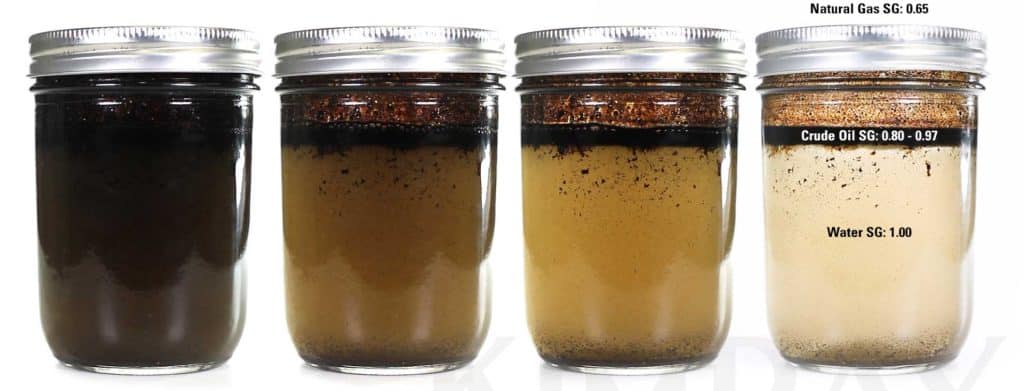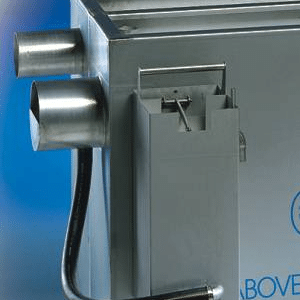Ever thought What Industries Use Oil Skimmers? or about how many industries fight environmental pollution with special tools? Oil skimmers are key in this fight, helping keep many sectors clean and in line with rules. These devices are vital for keeping water and industry standards high, but which industries really need them?
In today’s world, following environmental rules is more important than ever. Knowing which industries use oil skimmers shows their big role. They help keep oceans safe and water clean for factories, cars, oil, and food. Oil skimmers make sure places can meet tough rules by pulling oil out of water.
This article looks at how oil skimmers work in different places. It shows their big impact on work and the need to keep watching over our environment.
Key Takeaways
- Oil skimmers are widely used in industries such as manufacturing, marine, automotive, food processing, and oil and gas.
- These devices are essential for maintaining clean water systems and meeting regulatory compliance in environmental protection industries.
- Oil skimmers help improve operational efficiency and reduce costs associated with oil contamination.
- Innovative technologies enable oil skimmers to handle a variety of operational environments and oil types effectively.
- Regular maintenance of oil skimmers ensures their optimal performance and longevity in critical industrial settings.
Introduction to Oil Skimmers
Oil skimmers are special tools that remove oil from water surfaces. They are key in many industries, like after oil spills or in industrial settings. These devices use oil separation technology to pull oil out of water, making wastewater cleaner.
Definition of Oil Skimmers
Oil skimmers work in different ways, like disc, drum, and suction skimmers. Disc skimmers are good for lighter oils, while drum skimmers handle heavy oils like diesel. This makes them useful in many places, helping industries follow rules for oil removal.
Importance in Industrial Applications
Oil skimmers are very important in industries. They help manage wastewater by removing oil pollution. With different skimmers, like belt and tube skimmers, they can work well in many conditions.
Using oil skimmers is often required by law to avoid fines for pollution. They help industries follow rules and save money on waste disposal.

Oil Skimmers in the Marine Industry
Oil skimmers are key in the marine world, focusing on ship upkeep and green practices. They help grab waste oil during normal ship activities. This stops big environmental problems before they start.
Applications in Ship Maintenance
In ship upkeep, oil skimmers pull waste oil from machines and bilges. They work well in rough seas, adjusting to waves and currents. This keeps ships running smoothly.
Modern skimmers, like tube or disc types, can take out a lot of oil. But, they might need to go back a few times to get it all. They also handle different pollutants, making them useful in many sea areas.
Compliance with Environmental Regulations
Following environmental rules is a must in the sea world. Oil spills harm sea life by blocking oxygen and sunlight. Oil skimmers help by removing oil without using harmful chemicals.
This green method meets strict rules, avoiding big fines. New oil skimmer tech makes cleaning better. This helps ships follow rules and protect our oceans.
Impact of Oil Skimmers on the Automotive Sector
Oil skimmers are key in the automotive world. They help keep used oil recovery systems running smoothly. These systems are vital for managing wastewater from places like machine shops and service stations. They often have a lot of oil in them.
Using oil skimmers makes things run better. It cuts down on maintenance costs and keeps operations going without a hitch. Their design makes them easy to clean.
Used Oil Recovery Systems
Companies can improve their oil recovery with advanced equipment. Studies show that using these skimmers can cut down pollution in water. This helps meet environmental rules.
Oil skimmers also save money. They can lower fines by up to 30%. Plus, they make it possible to reuse water, saving 20-30% on water costs.
Enhancing Waste Oil Management
Oil skimmers also help manage waste oil better. They cut oil contamination by about 40% in car production. This shows they work well in many industries.
They keep tramp oil levels low. This is good for product quality and work efficiency. Low tramp oil levels mean better machine performance and a safer work place. This can lower health incidents by up to 25%.
Investing in good oil skimmers also boosts a company’s green image. This builds trust with customers who care about the environment.
Oil Skimmers in Manufacturing
In the manufacturing world, keeping things running smoothly and cutting down on waste is key. Oil skimmers are a big help here, mainly in recycling metalworking fluids. They help get these fluids back in use, saving money and being good for the planet.
Applications in Metalworking Fluid Recycling
Oil skimmers boost recycling in metalworking. They can remove up to 95% of oil from wastewater. This makes coolant systems cleaner.
Companies can use coolant for about 50% longer, saving on replacements. Better fluid quality means better products. Cleaner water also means less maintenance, saving up to 20% on downtime.
Reducing Wastewater Treatment Costs
Oil skimmers help cut down on wastewater treatment costs too. They can reduce oil content by up to 85% before treatment. This makes oil removal easier and treatment more efficient.
Using skimmers means less need to replace fluids, saving 30-50%. They help avoid environmental problems and keep operations in line with rules. For more on how they work, check out how oil skimmers benefit production.
Oil Skimmers for the Oil and Gas Industry
The oil and gas industry uses advanced technologies for quick oil spill response. Oil skimmers are key in these efforts. They help remove oil, grease, and fats from water surfaces.
These devices make oil separation more efficient. This is vital for managing oil and gas waste, mainly during big spill incidents.
Oil Spill Response Solutions
When big oil spills happen, quick and effective responses are needed. Skimmers offer innovative solutions to fight hydrocarbon contamination. For example, oleophilic skimmers are great at getting medium viscosity oils, common in industrial areas.
Other types, like belt skimmers and tube skimmers, have high recovery rates. They can work well in big areas. This helps improve the oil spill response effort and meet industry standards.
Enhancing Environmental Compliance
Keeping the environment safe is critical for the oil and gas sector. Using oil skimmers helps companies meet discharge limits. This reduces the risk of big fines.
Tools like slotted pipe skimmers and gravity skimmers use natural principles for oil recovery. Using more than one skimmer can increase recovery and lower risks. This focus on compliance helps companies follow rules and shows they care about the environment.
Oil Skimmers in Power Plants
Oil skimmers are key in power plants. They help manage waste and keep cooling water clean. These systems are vital for handling oil spills and keeping cooling water systems clean. This is important for meeting strict environmental rules.
Waste Minimization Strategies
Oil skimmers help remove oil from wastewater in power plants. There are different types of skimmers, like centrifugal, tube, and belt oil skimmers. Each type is designed for specific oil types, helping power plants manage oil spills well.
Improving Cooling Water Management
Good cooling water management is critical for power plants. Oil skimmers help keep cooling water clean by removing oils. Using advanced skimming technologies, like coalescing and disk skimmers, keeps oil levels in check. This helps avoid fines and protects aquatic ecosystems.
Impact on Food Processing Industries
In food processing, managing oil in wastewater is key. This industry often creates oily wastewater, which is a big worry for the environment and food safety. Removing oil from wastewater keeps it clean, making the workplace safer.
Managing Oil in Wastewater
Food processing needs good oil management to follow strict food safety rules. Skimmers play a big part by pulling out oils from water. Different types of separators make this job better.
By removing oil well, the water gets cleaner. This meets environmental rules and lowers the chance of fines.
Enhancing Hygienic Standards
Keeping wastewater clean is important to avoid bacterial contamination. This problem can come from oil in the water. It can also hurt the quality of food and make equipment less reliable.
Using oil skimmers in production lines helps avoid health risks and bad smells. This makes the workplace cleaner. Skimmers that last long and are easy to change also help by cutting down on downtime and costs.

Oil Skimmers for Wastewater Treatment Facilities
In wastewater treatment facilities, oil skimmers are key for removing oil. They pull oil and grease from wastewater, making treatment more effective. By using oil skimmers, facilities can remove 30-50% of oil before more treatment, boosting efficiency.
Streamlining Oil Removal Processes
Oil skimmers work well on wash water with high oil levels. They come in different types, like floating WEIR and tube skimmers, for various oil thicknesses. In perfect conditions, they can grab up to 90% of oil from ponds and lakes.
They also cut down pressure on oil separators by up to 40%. This makes treatment facilities work better.
The Role in Regulatory Compliance
Meeting regulatory standards is essential in wastewater treatment. Oil skimmers help by reducing oil-related contamination risks. In food processing, they keep things clean, lowering contamination rates.
By using oil skimmers, facilities improve treatment and support sustainability. They recycle oil and reuse water. This is key for keeping treatment plants within legal limits.
Advancements in Oil Skimming Technology
New oil skimming technology has raised the bar for oil recovery in many fields. A key innovation is better coalescing technology, which makes separating oil from water more efficient. Today’s systems can remove oil down to 0.1 parts per million (PPM).
This high performance comes from advanced designs that use the difference in oil and water density. This makes oil recovery faster and more effective.
Enhanced Coalescing Technology Overview
New oil skimming tech uses advanced materials like coalescing media to improve performance. These upgrades can increase efficiency by up to 30% in oil-water separation. This helps industries meet environmental rules and cuts costs.
Businesses can recover over 90% of oil in the best conditions. This is a big win for both the environment and the bottom line.
Advantages of Reusable Coalescing Media
Using reusable coalescing media brings big benefits. It reduces waste, which is good for the planet. As companies face stricter environmental rules, this tech is key for keeping operations smooth.
For the latest in oil skimmer tech, check out Freytech. The mix of IoT and data analytics makes these systems even better. They allow for real-time monitoring and better use of resources.
Benefits of Using Freytech Oil Skimmers
Freytech skimmers lead in oil and water separation technology. They offer key solutions across many industries. Their systems meet environmental rules and boost work efficiency.
This results in better wastewater treatment and oil recovery. It’s a win-win for the environment and businesses.
Separation Efficiency and Compliance
Freytech oil skimmers separate oil from water very well. They can remove less than 5 PPM oil from water with up to 2000 PPM oil. This helps businesses avoid fines from the US EPA’s Clean Water Act.
Places like car shops, gas stations, and industrial sites benefit a lot. They can handle oily wastewater safely and efficiently.
The Value of High Purity Oil Recovery
Freytech turns waste oil into something useful. Their advanced separators can get oil levels in water down to 0.1 PPM. This makes managing oily waste cost-effective and good for the planet.
With Freytech, companies can adopt green practices. This helps industries grow sustainably and protects our environment for the future.
Case Study: Freytech’s Implementation
Freytech Inc. has made big strides by using skimmers in different industries. They show how these tools help make operations more efficient and green. The case study shows how Freytech’s solutions tackle unique environmental problems.
Successful Deployment in Different Industries
Freytech’s oil skimming tech has been used in car, petrochemical, and marine sectors. It has shown great results. The EcoLine A and B series separators handle flows from 25 to over 640 gallons per minute.
These systems can separate oils very well, keeping discharge levels as low as 5 PPM. In busy places, the EcoLine B 3 separator works great at 50 GPM. It makes sure oil discharge meets strict North American limits of 10 PPM.
Measurable Environmental Benefits
The benefits of oil skimmers are clear in how they reduce oil contamination and improve oil purity. Freytech’s systems can separate oils up to 0.1 PPM. This means less waste and lower costs for disposing of oil with lots of water.
By lowering discharge levels, Freytech helps companies follow environmental rules. This shows their commitment to being green. The use of Freytech’s Environmental Balance Device (EBD) shows their focus on saving energy and cutting emissions. This makes operations more sustainable across many sectors.
Conclusion: The Future of Oil Skimmers
The future of skimmers looks promising as companies focus on being green. They are working hard to meet strict rules and use eco-friendly methods. This is because oil spills harm our oceans and need to be stopped.
Most oil spills come from small leaks, not big accidents. So, finding better ways to clean up oil is key. This helps keep our oceans safe and meets environmental laws.
Trends in Industrial Oil Management
As industries grow, they’re looking for new ways to be green. They’re using smart technologies that help them work better and hurt the planet less. These new systems can track and automate oil skimming.
These advancements help save resources and improve how much oil they can clean up. Under the best conditions, they can clean up to 95% of oil spills.
The Role of Technology in Sustainable Practices
Technology plays a big role in making oil recovery better for the planet. New materials, like magnetic nanostructure sponges, can soak up more oil. This is good news for the growing market of biofuels made from recycled oils.
These changes show that companies are moving towards being more eco-friendly. They want to protect the environment and make money at the same time.


